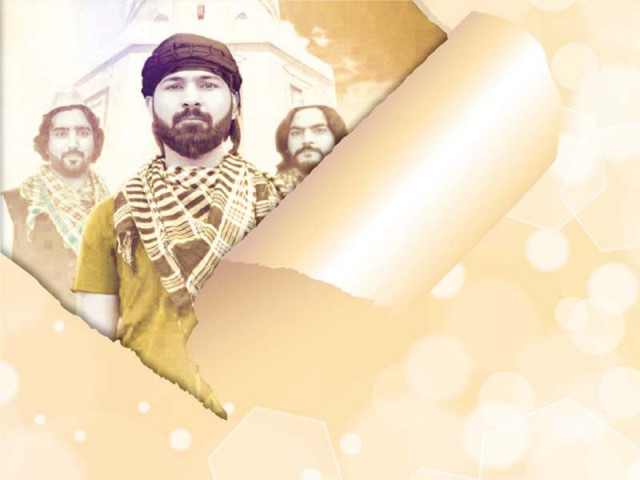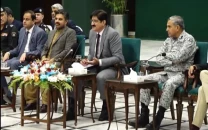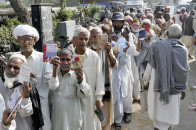Paying musical tribute to Pashto poets
Musician fuses rock music with traditional verses to spread message of peace, tolerance

However, one Pashto musician has sought to revive interest in the music, using elements from legendary Pashto poets with a modern rock twist in his latest musical release.
Death of two poets in 2015 leaves void in Pashto literature
“In all Pashto poetry, there are more elements of Sufism than in any other language,” says musician Ali Baba Khan while speaking to The Express Tribune.
He believes that Sufism is the main element of Pashto poetry and should be given a voice.
“From classical Pashto poets to Hamza Baba or Abdul Ghani Khan, Pashto poetry is more focused on Sufism than romanticism [as explored by poets in other languages],” Ali says.
Noting that he was inspired by the poetry of legendary Pashto poet Ghani Khan, Ali said that he started delving into Sufi rock music.
His first ever music video — Tassawar —was on a song which was a fusion of Ghani’s verses and Qawwali. The experiment had earned him plaudits from the public and spurred him to dabble in other similar experiments.
“It was for the first time that I blended Ghani Khan’s poetry into Sufi tunes,” the artist said.
The song also opened a door for him to perform at an international Sufi concert in Kabul where Pashtun immigrants from the UK, US, Germany and Gulf-States appreciated his unique style.
Rahman Baba and Pashtun identity
Ali does not confine himself to one poet. In a video of one his recent songs, Ali said he paid tribute to seventeenth-century Pashto poet Rahman Baba.
The young musician believes that poetry of Rahman Baba, a true Pashtun cultural icon, should be used as a symbol of peace and identity in the world.
The significance of Rahaman Baba and the identity he lends to Pashtuns, Ali suggested, can be gauged from the fact how terrorists bombed the poet’s shrine in March 2009 — ostensibly to break the spirit of the Pashtun people.
With the shrine rebuilt, the artist believes the best way to avenge the poet would be to spread his message of love, peace and tolerance.
In this respect, his new video, ‘Malang Abdur Rahman’, has been shot at the rebuilt shrine.
Ali said that while many musicians and singers have used Rahman Baba’s work in their music, few have stopped to pay their respects and tribute to the poet.
In that respect, Ali hopes that this song will be the first-ever Sufi musical tribute to the great poet.
Moreover, the musician hopes that a more rock treatment to traditional Sufi music would help endear him to a younger audience and spread the message of tolerance in Rahman Baba’s poetry.
The song’s lyrics have been penned by famous poet and writer Layyeq Zada Layyeq.
Clinging to tradition
Ali believes that senior artists have become pessimistic and believe there is nothing left for new artists to either do or cash in on.
Pashto pop music reflects region’s war fixation
Instead of being discouraged, Ali believes the older generation has been clinging on to traditional music as a crutch and shun new experiments whereby they can attract more people towards their music.
Despite that, Ali does admit to not having fully worked out his model since his videos cost a lot of money to produce and there are limited platforms for them to perform. To make matters worse, there is no culture of purchasing albums — leaving few avenues for the artist to recuperate the costs.
“We need a platform to perform on stage,” said the artist, adding that there were a lot of artists and good musicians out there without an opportunity to express themselves.
Published in The Express Tribune, November 15th, 2017.

















COMMENTS
Comments are moderated and generally will be posted if they are on-topic and not abusive.
For more information, please see our Comments FAQ